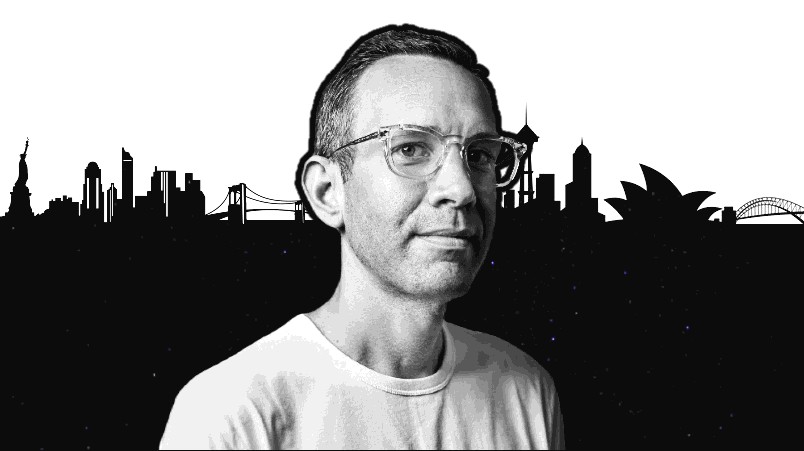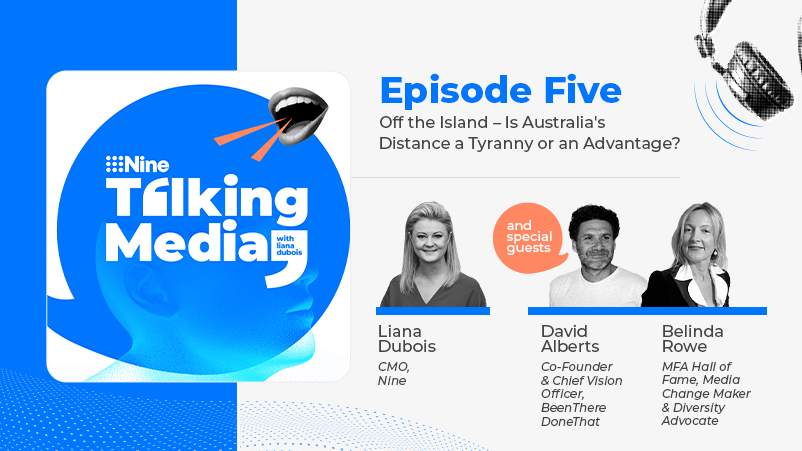‘AI is a really big problem’: IPG’s Huge global CEO Mat Baxter drops agency model selling people for consulting sector’s products and templates, margins up - and no awards, less PR puff and posturing

Mat Baxter: "We're not doing the award thing. We're not shouting PR in our campaign work…clients think we're a bunch of idiots patting ourselves on the back with awards, talking about how many things we’re winning. We can be a bit more refined."
Part two: Mat Baxter used to be a walking headline but he pledges less of it. He’s headlong into a sometimes ‘painful’ reinvention of his global tech, design, ‘creative growth’ and innovation business which unashamedly has swung to the big consulting firms over agencies for its future as AI takes an initial 20 per cent of the agency workload off humans. Baxter’s parent company IPG generates circa US$11bn in revenues, mostly from its agency networks selling their people on a head hours basis. But he says that’s a doomsday scenario thanks to a killer combo for agencies of AI-led automation and margin killing procurement teams. More automation means fewer people that can be charged out on an hourly basis – and those that remain will be razored by corporate cutters. Instead, building advisory-based products and templates – or “productisation” – is one alternative Baxter says every traditional agency will have to consider to beat the machines and the number crunchers. Some already are – Dentsu and parts of WPP included.
If you're an agency and you sell 100 [head] hours today, you might only be able to sell 80 hours tomorrow because AI removes 20 of those hours from the process. So now you've got a business that's got 20 per cent less potential from a monetisation standpoint.
Thousand cuts
AI would kill Mat Baxter’s agency without a different business model that shifts it from people to products. Late last year Baxter started an overhaul of his lean but global business, Huge, which built web sites and apps among its services offering. But it was troubled.
“The business model we had was broken. Every year, we saw it decline consistently,” Baxter told Mi3 this week in confirming his return to Australia, from where he will run the global firm. “For the last eight to 10 years, it's been on the decline because we were selling people on hours. Every year procurement comes to you and says ‘I'll pay you less’ so it's not a model that works.”
The new flashpoint is the impact AI and automation is going to have on the tasks people used to do – less people means less head hours an agency can charge for. Baxter lobs a number of circa 20 per cent that could be cut from the current workloads of agency humans in the first wave of AI deployment.
“Agencies have got a service model on people and hours, which has been under strain already and it's going to be under even more strain as we move into an automated future with AI, where the kind of mundane tasks happen much faster within every business. Not just advertising and marketing, but in every business, in every category,” he says.
We're taking a leaf out of the consultancies book, versus the agency book. Agencies are always out there shouting … consultants are a lot more discreet. The more upstream you go, which is what we've done, the more sensitive the work becomes.
“The number one thing an agency should be shitting itself over right now is AI is because what AI does is ultimately make things happen faster. If you're a business that charges on time, and AI makes everything faster, guess what? You lose hours, you actually lose your ability to sell hours," per Baxter.
"So if you're an agency and you sell 100 hours today, you might only be able to sell 80 hours tomorrow because AI removes 20 of those hours from the process. So now you've got a business that's got 20 per cent less potential from a monetisation standpoint. That's a fucking big problem and so agencies have to pivot fast, now."
And as AI makes everything more efficient, "you can guarantee procurement departments are going to come knocking at the door, saying to agencies, ‘well hold on, if your teams are doing everything more efficiently, and we pay you on an on head hours, I'm going to pay you less hours’.”
Sell products, not people
Baxter’s solution is building products and templates that have preset costs, structured processes and contractual outcomes for clients rather than time sheets and head hour counts. It’s the consulting sector’s approach which Baxter has unashamedly embraced.
“Yes, we've taken a leaf out of the consultants' book. That's what the entire productisation program has been about,” he says. “We’re moving from selling people in hours to outputs and outcomes.
“The truth of it is all businesses at some level are going to have to rethink their business model and ask themselves: what is it that we actually are charging for?
“All we did was say, okay, if the model doesn't work, we better find a new one. You no longer buy a team, a certain number of people with a certain number of hours with a certain head hour rate. You buy a finished product with a set of ingredients that give you outputs and outcomes that the company stands by. And that allows you to have much more robust pricing that is less open to the commoditisation that we've been seeing on the people side of the business," says Baxter.
"It allows you to be a more profitable enterprise with a more easy to navigate set of capabilities for clients to understand and ultimately to purchase. When we've delivered product versus people in hours, we've seen margin go up substantially. And we've seen the role of procurement departments being much more limited because rather than negotiating on a head hours basis about the number of people on a team and the number of hours that it takes for that team to get the job done, they're buying a pre-predefined product with a predefined set of outputs and outcomes.”
No awards, less posturing
Baxter says the new approach is so far proving to “be everything that we'd hoped”. Clients, he argues, are more receptive and the average value per sale has lifted “significantly”.
“It's easy for clients to navigate the agency's capabilities because the products make it clear what the problems are that they solve, what the ingredients are that you get when you buy that product – and most importantly, what outcomes you get at the end of it. So there's a clarity in it.
Baxter’s flip to the consulting sector’s productisation approach is also shifting Huge's approach in market – less shouting, less PR and awards back slapping that has typified the agency sector’s need for posturing.
“We're taking a leaf out of the consultancies book, versus the agency book,” he says. “Agencies are always out there shouting … consultants are a lot more discreet. The more upstream you go, which is what we've done, the more sensitive the work becomes.
“We're not doing the award thing. We're not shouting PR in our campaign work … clients hate it. They think we're a bunch of idiots patting ourselves on the back with awards, talking about how many things we’re winning. We can be a bit more refined.”



